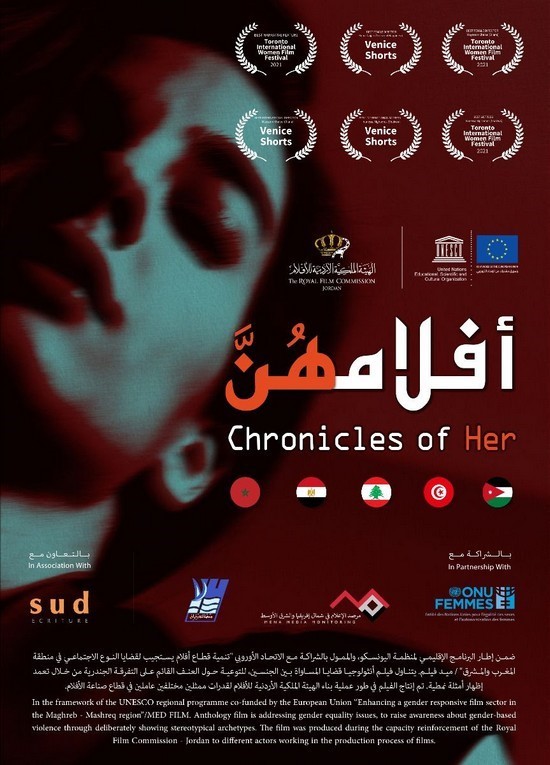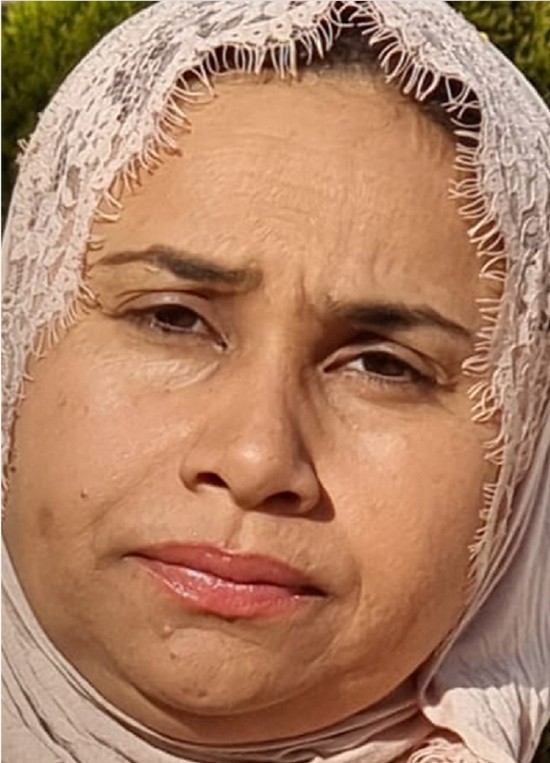The 11th edition of Women's Film Week
was launched Sunday, under the patronage of HRH Princess Basma Bint Talal, UN
Women Goodwill Ambassador.
Organized by UN Women, the Royal
Film Commission-Jordan, and partners at Rainbow Theater, this event celebrates
films made by and about women from around the world.
اضافة اعلان
The week-long event aims to provide
a platform to discuss women's representation in the film industry and behind
the camera, intersectionality, history, and empowerment both on and off screen.
The films screening during the event
are rich in deep stories and experiences, portraying the different realities
faced by women across the board.
Arab women storiesThe selection includes “Chronicles
of Her” and “Abused: Surviving Domestic Violence in Jordan”, both films that
highlight a grim reality relating to the lives of Arab women.

“Chronicles of Her”, screening at
8pm at Rainbow Theater, is a collaboration of five women directors, each
presenting a gut-wrenching story of women and their struggles, revealing the
urgent need to improve the lives of millions of women in the region. Through
this narration, the stories that many women experience in the Arab world are
given a space and a vessel to promote change.
“Abused: Surviving Domestic Violence
in Jordan”, screening at 6pm, takes a closer look at domestic violence in the
Arab world, which is rarely addressed in public. The film includes groups of
women and men openly discussing women's rights under civil and sharia law and
whether violence is genetic or environmental. Covering domestic abuse, sexual assault, and gnarly
divorce, the stories shared in the film are dark,
but the bravery of the women who talk about their experiences shines through.
Resilience and strengthThe event also features films that
portray women's resilience and strength, such as “How Elisa Runs by Chus
Gutiérrez”, to be screened Tuesday at 6pm.
The film follows the life of
82-year-old Elisa Forti as she prepares to run the most important race of her
life: a 25km race through her hometown in northern Italy, demonstrating that
"age is what is felt in the heart, not what a document says."

“The Girl from Tomorrow” by Marta
Savina is another films that highlight the different plights of women. Telling
the story of Franca Viola, the first Italian woman to oppose the practice of a “shotgun”
marriage in the 1960s, by dragging her rapist to court, the film brings the
screen to life.
Against the backdrop of a
patriarchal and peasant Sicily, where customs often insinuate themselves into
the gray spaces left by written rules, the protagonist — named Lia Crimi for the occasion — fights
against social stigma and loneliness to conquer her freedom tooth and nail.
The film's concentration on the
drama highlights the oppressive microcosm in which the story is set. Despite
the absence of directing virtuosity or flourishes, the writing's balance and
significance —+more emotional and anthropological analysis — effectively engage
the audience.
The film's strength lies in its
ethical and civil impetus, characteristic of Italian cinema of the past. The
credible reconstruction of events and the rigor of the narration merge in the
last part of the film, which embraces the procedural genre. Even though the
audience knows how the story ends, the film manages to involve them, ultimately
leaving a lasting impression.
Screening
will be running until March 18.
Read more Entertainment
Jordan News



